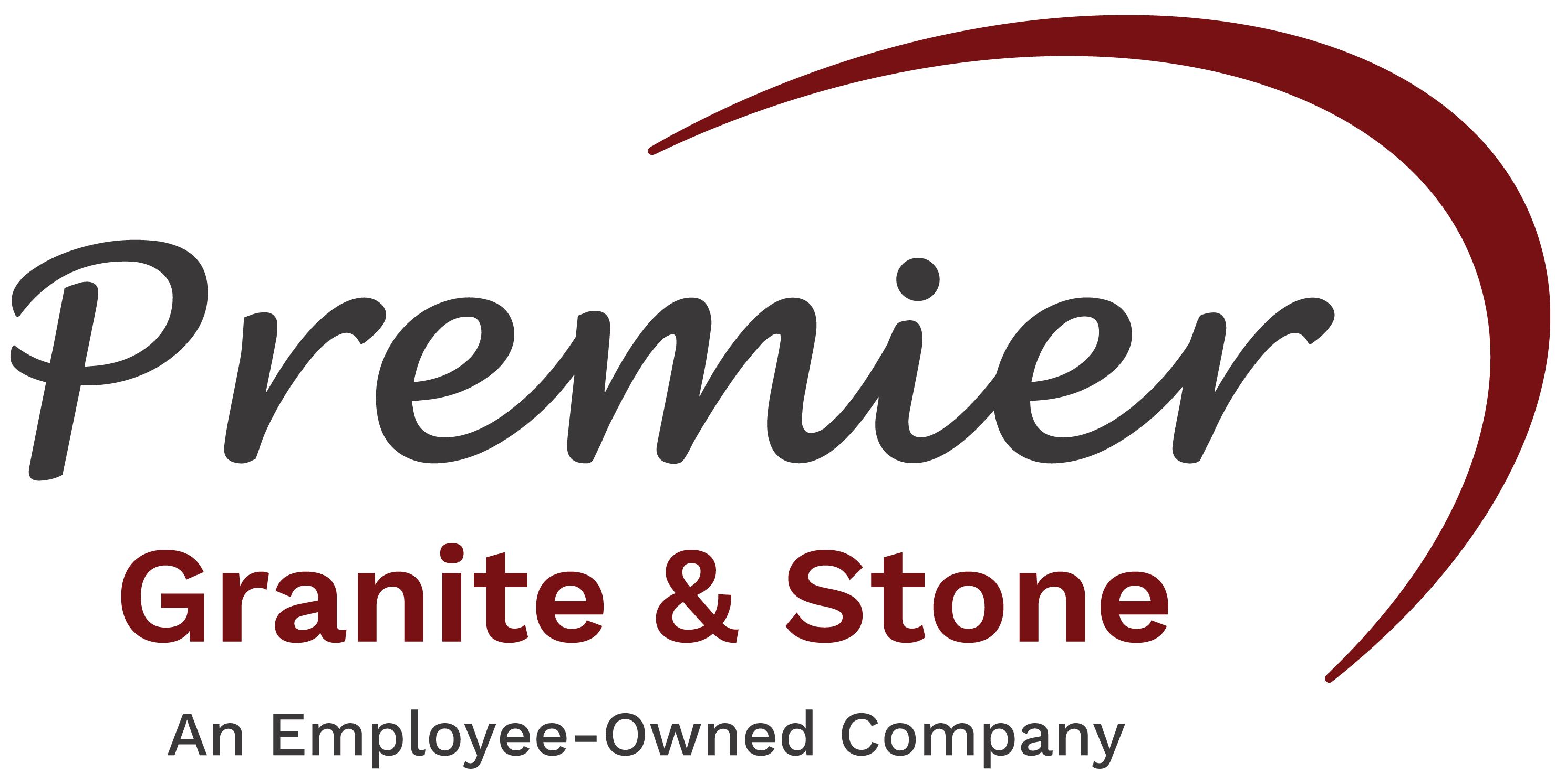How to Care for your Porcelain Countertops
Porcelain is made from a variety of clays and other natural materials that undergoes a firing process at upwards of 2100 degrees Fahrenheit. It is non-porous, antimicrobial/antibacterial/hygienic and food-safe, waterproof, highly scratch and wear resistant, heat, UV ray, and freeze thaw resistant, and stain resistant. It also is not damaged by most chemicals. Hydrofluoric acid and its derivatives should be avoided. Porcelain is easy to maintain and durable, however, it is not damage proof.
Routine Care and Maintenance
Simply clean with warm water, a damp cloth, and a small amount of soap or non-abrasive cleaner without bleach on a regular basis. Dry with a soft cloth to remove water spots. Stone, porcelain, and tile cleaners are also available for purchase from many box stores, grocery stores, and hardware
stores. Soft, non-abrasive cloths are recommended, and harsh scouring pads/steel wool should be avoided.
Preventing Damage
Heat
Pots and pans taken from your oven or stove top can be placed directly on your porcelain countertops. Porcelain is highly resistant to heat (think of ceramic/porcelain cookware and crockpots). However, do not place hot skillets, pans, crockpots, or other heat-generating kitchenware directly over a seam as this can “pop” your seam apart.
Staining
Due to its non-porous nature, porcelain is highly resistant to stains. Although spills should be cleaned up right away, common cleaning agents are able to take care of stubborn spots including food, oils, chemicals, and even graffiti. Please see the chart for recommended cleaners to use depending on the type of spill/stain.
Scratches, Chips, Cracks and Repairability
Although porcelain is highly scratch resistant, we still advise the use of a cutting board to prevent metal marks and surface etching on a polished finish. PORCELAIN CAN CHIP AND CRACK. This usually occurs if something heavy is dropped on it or the edges are bumped. If chipping occurs, it is normally on a straight polished edge or at your undermount sink edge. PORCELAIN IS NOT REPAIRABLE. Please use proper caution in order to avoid irreparable damages to your countertop, its corners, and its edges.
Outdoor Use
Porcelain is highly resistant to Ultraviolet Light, meaning it won’t fade over time when exposed to direct sunlight. Its waterproof nature also protects it from ice and freeze/thaw damage, making it an ideal countertop material for outdoor areas.
Spill Care
*NOTE: If using any detergent with abrasive qualities for stubborn spots, use gently and sparingly to avoid damage. Avoid plant oil soaps.
- Traces of Metal – Alkaline/Neutral Detergent/Acid
- Food – Alkaline/Neutral Detergent/Acid for Wine & Coffee Oxidant for Coke & Fruit Juices. Mr. Clean, Tile Cleaner, 409, Windex, Lysol, Spic & Span, Comet*, Liquid Poultice
- Oil & Grease – Alkaline/Neutral Detergents/Solvent. Mr. Clean, Tile Cleaner, 409, Windex, Lysol, Spic & Span, Comet*, Liquid Poultice
- Markers/Graffiti – Alkaline/Neutral Detergents/Solvent. Comet* , Mr. Clean, ZUD
- Water-Based Paint or Stain – Tile Cleaner, Mr. Clean, Comet*
- Limescale/Rust – Acid. Descaler
- Epoxy Adhesive or Grout – Solvent. White Vinegar*, Lime-A-Way
Acid – any cleaning product with low pH or descaling agent
Alkaline – basic cleaning agents, ammonia, etc.
Oxidant – such as hydrogen peroxide and diluted bleach
Solvent – turpentine, acetone, alcohol, etc.

